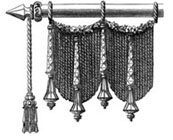
Is It Time to Elect Bishops Again?
GUEST COLUMN
Two developments of the past few years have caused American Catholics to focus on their largely unknown hierarchy — the televising of bishops’ meetings and the scandal of sexual abuse (by a small percentage of priests) with episcopal cover-up (by many bishops).
Thanks to television, particularly EWTN, we ordinary laity in the pews can look in on the bishops at their annual proceedings. Their names are becoming familiar and it’s not an impressive collection of shepherds. In the words of that inquiring mind, Butch Cassidy, we might dare ask, “Who are those guys?” Or, more importantly, where did they come from?
The second development — the abuse-and-cover-up scandal — makes those questions more urgent. Three years ago the panicked shepherds had to respond to the scandals and to appear, particularly to the media, to be doing something. And they did, producing the flawed Dallas Charter and appointing a National Review Board. The Dallas Charter was flawed because its focus was on the clergy and lay employees — somehow there was little mention of episcopal obstruction of justice. (One eager cardinal, oblivious to due process and concern for reputation, even released the names of all priests in his diocese ever accused of improprieties.)
How had it happened that a majority of bishops had priorities so disordered that, as summarized by the Dallas Morning News in 2002, they had sought to conceal and obstruct? Who picked them to lead the Church?
You May Also Enjoy
Morality based on the opening of the soul expressed by the prophets of Israel, the mystic philosophers of Greece, and the authors of the Gospels defies all calculations of self-interest and promises joy.
The bishop must announce to the rich and poor, to the powerful and weak the fullness of truth, which sometimes irritates and offends, even if it always liberates.
The Pope's decision to allow women into two “minor orders” of the Church shows how significant change can be instituted incrementally.

